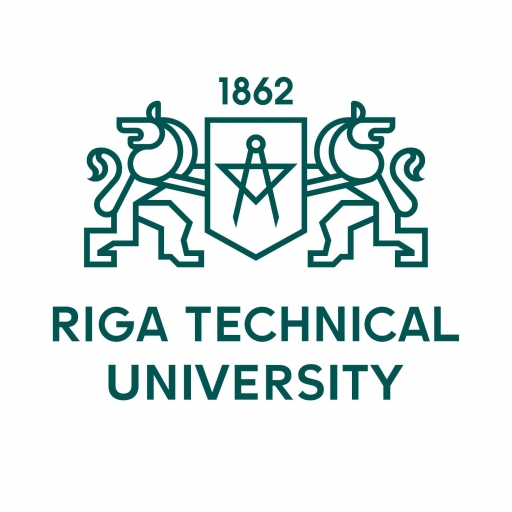Photos of university / #newcastleuni
The BSc (Hons) Electrical and Electronic Engineering program at Newcastle University Medicine Malaysia is a comprehensive undergraduate degree designed to equip students with a solid foundation in the principles and applications of electrical and electronic engineering. This programme provides students with the technical knowledge and practical skills necessary to thrive in a rapidly evolving technological landscape. The curriculum covers a broad range of topics including circuit analysis, digital systems, control systems, telecommunications, power systems, embedded systems, and renewable energy technologies. Throughout their studies, students engage in laboratory work, project-based learning, and industry placements that foster hands-on experience and real-world problem-solving skills. The programme is taught by experienced academic staff who are dedicated to delivering high-quality education grounded in the latest developments in the field. It also emphasizes contemporary issues such as sustainability, smart technologies, and energy efficiency, preparing graduates to contribute effectively to modern engineering challenges. By the end of the course, students will have developed the analytical, design, and research skills required for a successful career in sectors like electronics, telecommunications, renewable energy, automotive, and consumer electronics. The programme is suitable for students interested in innovation, technology development, and advancing the future of electrical and electronic systems. With a focus on both theoretical understanding and practical application, graduates will be well-equipped to pursue careers in industry, or to go on to postgraduate studies and research in this vital and dynamic discipline.
Electronics and Electrical Engineering at Newcastle University Medicine Malaysia offers a comprehensive and innovative curriculum designed to equip students with the essential knowledge and practical skills required to excel in the rapidly evolving fields of electrical and electronic systems. The programme integrates core principles of electrical engineering, such as circuit analysis, control systems, signal processing, and electromagnetism, with advanced topics including renewable energy, embedded systems, and telecommunications. Students will engage in a variety of laboratory sessions and project-based learning opportunities that foster hands-on experience, critical thinking, and problem-solving abilities. The course emphasizes the development of technical expertise alongside professional skills like teamwork, communication, and ethical responsibility, preparing graduates to meet industry demands effectively. Throughout the programme, students are encouraged to explore emerging technologies such as Internet of Things (IoT), smart grids, and automation systems, ensuring they stay at the forefront of technological innovation. The curriculum is structured to provide a solid theoretical foundation complemented by practical application, with opportunities for internships and industry collaboration that enhance employability. With the support of experienced faculty members and state-of-the-art facilities, students will undertake modules covering design, analysis, and implementation of electrical and electronic systems, all within a global context that emphasizes sustainability and innovation. The programme aims to produce versatile engineers capable of contributing significantly to sectors including energy, manufacturing, telecommunications, and consumer electronics. Graduates will be well-equipped to pursue careers in research and development, technical consultancy, engineering management, or further postgraduate study. The Newcastle University Medicine Malaysia’s Electrical and Electronic Engineering programme stands out for its commitment to excellence, industry relevance, and student success, ensuring a dynamic learning environment that prepares students for the challenges of the modern engineering world.
the program requirements for the Electrical and Electronic Engineering degree at newcastle university medicine malaysia typically include a strong foundation in mathematics, physics, and engineering principles. prospective students are generally expected to have completed secondary education with excellent results in relevant subjects such as mathematics and physics. admission criteria often specify a minimum grade point average or equivalent qualification, reflecting academic dedication and readiness for rigorous technical coursework. proficiency in english language is also a standard requirement, with tests such as IELTS or equivalent scores necessary for international applicants. prior experience or knowledge in electronics, programming, or circuit design can be advantageous but is not always mandatory. applicants may need to submit personal statements or references demonstrating their motivation and suitability for the program. in some cases, interviews or entrance tests are conducted to assess problem-solving skills and technical understanding. the program may also emphasize teamwork, communication skills, and practical experience through lab work, projects, and industry placements. candidates should ensure they meet all specific entry requirements listed on the university's official website and prepare application documents accordingly. overall, successful applicants demonstrate a combination of strong academic background, technical aptitude, and enthusiasm for electronic and electrical engineering disciplines in order to pursue this demanding and rewarding program at newcastle university medicine malaysia.
The financing of Electrical and Electronic Engineering studies at Newcastle University Medicine Malaysia is structured to provide accessible and comprehensive support for eligible students. The program offers a variety of funding options to help ease the financial burden associated with pursuing a degree in this field, including government sponsorships, scholarship opportunities, and student loans. International students may also have access to specific scholarships aimed at assisting international scholars in covering tuition fees and living expenses.
Scholarships are awarded based on academic merit, extracurricular achievements, and economic need. Some scholarships may cover full tuition fees, while others provide partial funding to assist with course materials and living costs. The university also collaborates with government agencies and private organizations to facilitate sponsorship programs, which may include government loans or grants designed to promote STEM education.
In addition to scholarships and sponsorships, students may consider external financial aid options available through Malaysian government schemes or financial institutions. These often come with favorable interest rates and repayment terms tailored for students pursuing degrees in engineering or related technical disciplines. International students should check specific eligibility criteria for these options and seek guidance from the university’s financial aid office.
The university also provides financial planning and counseling services to help students manage their tuition fees and personal expenses throughout their studies. Flexible payment plans may be available for tuition fees, allowing students to spread payments over the duration of their course. Furthermore, students are encouraged to explore part-time work opportunities permitted under student visa regulations to supplement their income during their studies.
Overall, Newcastle University Medicine Malaysia is committed to supporting its students financially through a combination of scholarships, external funding, and institutional resources. The goal is to ensure that qualified students can pursue their Electrical and Electronic Engineering degree without undue financial hardship, enabling them to focus on their academic and professional development in preparation for careers in the rapidly evolving sectors of electrical and electronic technology.
The Bachelor of Engineering in Electrical and Electronic Engineering at Newcastle University Medicine Malaysia (NUMed) offers students a comprehensive education in the fundamental principles and practical applications of electrical and electronic systems. This programme is designed to equip students with a solid foundation in electrical circuits, control systems, telecommunications, digital electronics, power engineering, and embedded systems. Throughout the course, students develop critical thinking, problem-solving, and technical skills through a combination of lectures, laboratory work, projects, and industrial placements. The curriculum emphasizes both theoretical understanding and practical experience, preparing graduates for careers in various sectors, including manufacturing, telecommunications, renewable energy, and robotics.
Students benefit from state-of-the-art laboratory facilities and access to modern technology platforms, fostering innovative learning and research opportunities. The programme is delivered by experienced academic staff who are active in research and industry, ensuring that students are exposed to current trends and developments in electrical and electronic engineering. Additionally, NUMed’s strategic partnership with industry allows for internships and live project opportunities, which are valuable for employment prospects after graduation.
The course also emphasizes professional development, encouraging students to engage in teamwork, communication, and project management. Graduates of this programme will be well-prepared to pursue further studies or enter the workforce as electrical and electronic engineers, systems designers, or technical specialists. The degree provides eligibility for Chartered Engineer status and other professional recognitions in the engineering sector. Overall, the programme aims to nurture innovative engineers capable of contributing to technological advancement and economic growth within Malaysia and globally.






